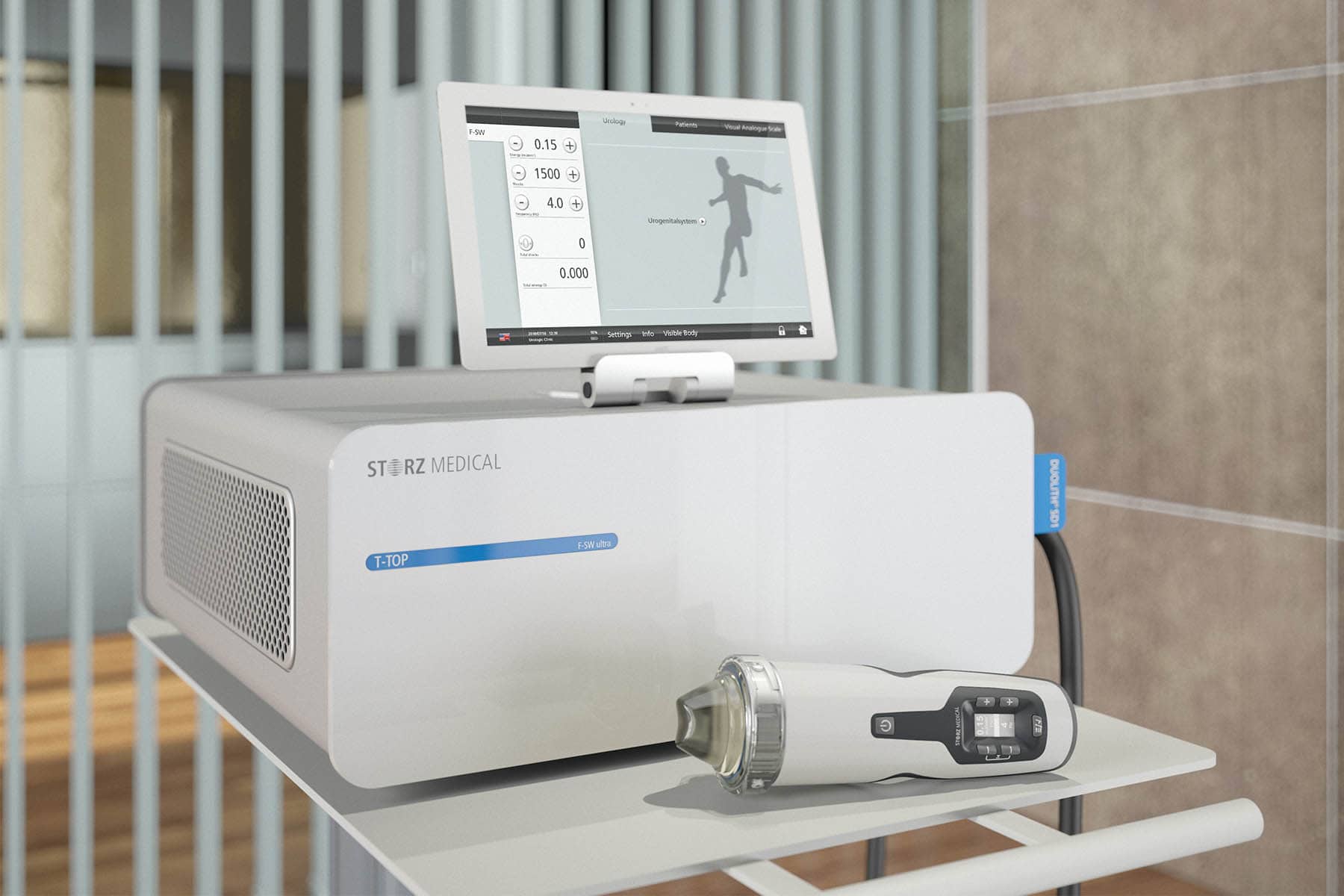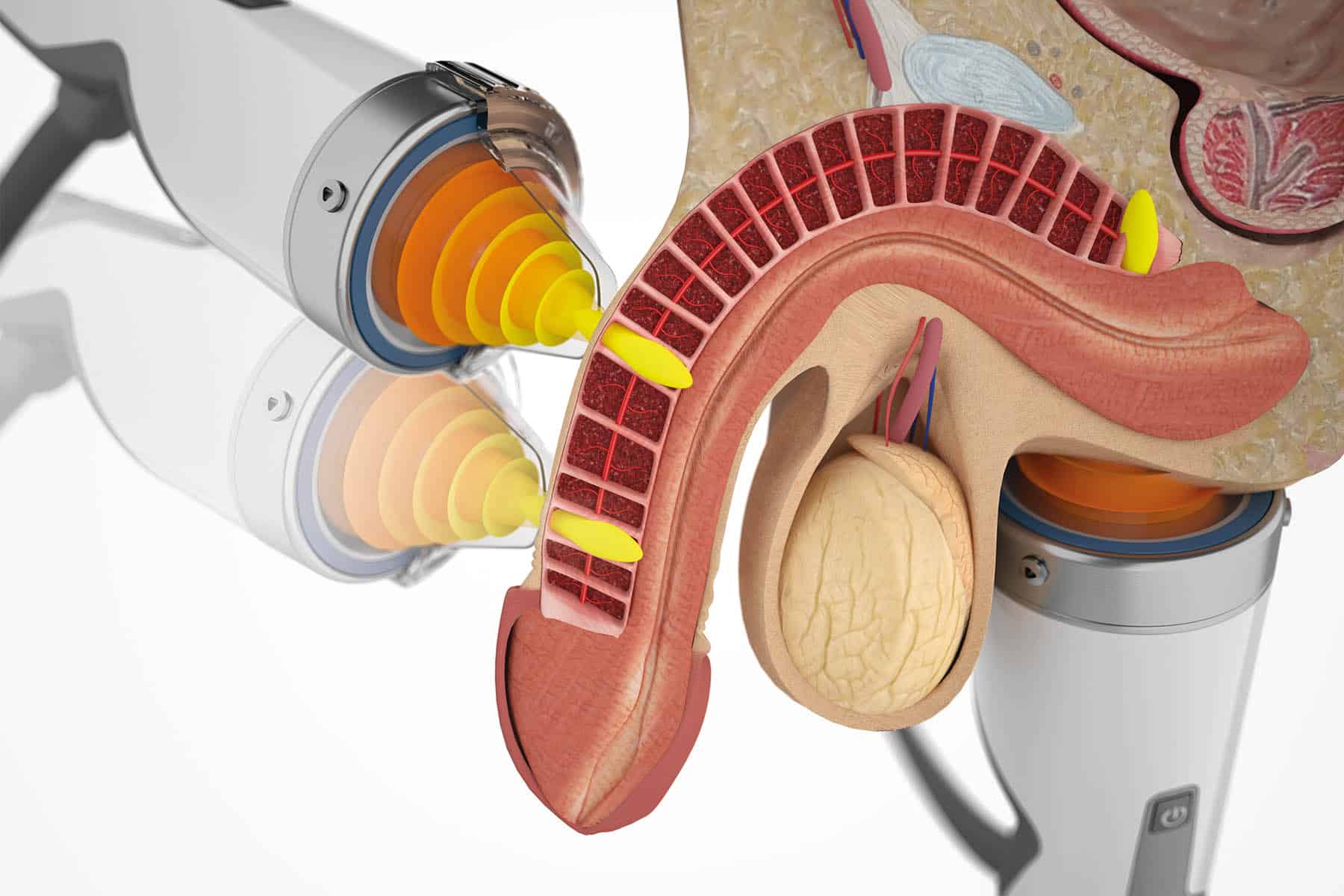Shockwave therapy is a non-invasive treatment for various medical conditions, including musculoskeletal injuries, chronic pain and erectile dysfunction (ED). By using acoustic waves to stimulate blood flow and tissue regeneration, this innovative therapy has provided relief for many people suffering from persistent discomfort and impaired function. While shockwave therapy is an effective solution for many, it may not be suitable for everyone. Understanding who can benefit from this treatment and who should avoid it is crucial before pursuing it as a treatment option.
How Shockwave Therapy Works
Shockwave therapy uses high-energy sound waves to promote healing by stimulating blood circulation and encouraging tissue regeneration. These acoustic waves are directed at an affected area to break down scar tissue, enhance collagen production and reduce inflammation. Originally developed for treating kidney stones, shockwave therapy has since expanded into various medical fields, including sports medicine, orthopaedics and urology.
One of its most recognised uses is for erectile dysfunction (ED) treatment, where shockwave therapy improves blood flow to the penile tissue, helping men achieve and maintain erections. The treatment is also commonly used for musculoskeletal conditions, such as plantar fasciitis, Achilles tendonitis and tennis elbow, as well as for chronic pain management in joints and soft tissues.
Who Can Benefit from Shockwave Therapy?
Shockwave therapy is an excellent treatment option for individuals experiencing chronic pain, tendon injuries or circulatory issues. Many patients have this treatment for persistent musculoskeletal problems that have not responded well to conventional methods such as physiotherapy, medications or steroid injections.
Men struggling with erectile dysfunction can also benefit from shockwave therapy as it enhances blood flow to the penis, addressing one of the leading causes of ED. This therapy is particularly effective for men with vascular-related erectile dysfunction, where poor circulation has affected their ability to achieve firm and lasting erections.
Athletes and individuals with sports-related injuries often turn to shockwave therapy for its ability to accelerate healing and relieve pain without the need for surgery. Since this treatment is non-invasive and drug-free, it appeals to those looking for a natural and long-term solution to pain management and functional restoration.
Who Should Avoid Shockwave Therapy?
While shockwave therapy is beneficial for many, there are specific cases where it may not be recommended. Those with certain medical conditions should consult a specialist before considering this treatment.
People who should avoid shockwave therapy include:
- Pregnant women – The effects of shockwave therapy on pregnancy have not been well-studied, making it advisable to avoid the treatment during pregnancy.
- Individuals with blood clotting disorders – Conditions such as haemophilia or those taking anticoagulant medication may be at a higher risk of bleeding or bruising.
- Patients with pacemakers or implanted medical devices – The acoustic waves used in shockwave therapy can interfere with electronic implants.
- Individuals with active infections, tumours or severe nerve disorders – These conditions may react unpredictably to shockwave therapy and therefore require alternative treatment approaches.
A thorough medical consultation is essential to determine whether shockwave therapy is appropriate, ensuring patient safety and maximising the effectiveness of treatment.

Possible Side Effects and Risks
One of the reasons shockwave therapy is widely used is because it has low risk of complications compared to surgical or pharmaceutical alternatives. However, like any medical procedure, it is not entirely without side effects.
Common mild side effects include:
- Temporary soreness or discomfort in the treated area.
- Mild redness, swelling or bruising.
- A tingling sensation during or after treatment.
In rare cases, some patients may experience increased sensitivity in the treated area or prolonged discomfort. If side effects persist, it is crucial to consult a medical professional. Overall, shockwave therapy remains a safe treatment with very minimal discomfort when administered by experienced specialists.
Consultation and Next Steps
Before undergoing shockwave therapy, it is essential to seek advice from a qualified specialist who can assess your medical history, symptoms and overall suitability for the treatment. A professional consultation involves a thorough evaluation, potentially including diagnostic tests, to determine whether shockwave therapy is the right option.
During this initial assessment, your specialist will discuss expected outcomes, possible side effects, and alternative treatments if necessary. This personalised approach ensures you receive the most effective and appropriate ED treatment or pain management solution.
Take the Next Step Towards Effective Treatment
Shockwave therapy is a highly effective treatment for ED, chronic pain, and musculoskeletal conditions, but as mentioned it is not suitable for everyone. While it provides a non-invasive, drug-free solution for many patients, individuals with certain medical conditions should consult a specialist before pursuing this option. If you are considering shockwave therapy for ED treatment, schedule a consultation with The Forbury Clinic today to explore your options and receive expert, tailored guidance.


